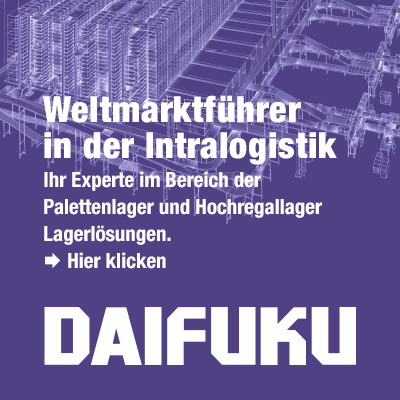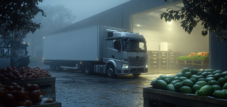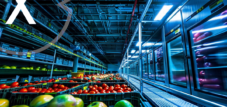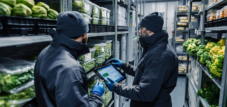Whether Africa, Asia (China, India), Latin America or even Europe – loss-making to inadequate cold chains in cold logistics and fresh produce logistics
Language selection 📢
Published on: December 16, 2024 / update from: December 16, 2024 - Author: Konrad Wolfenstein
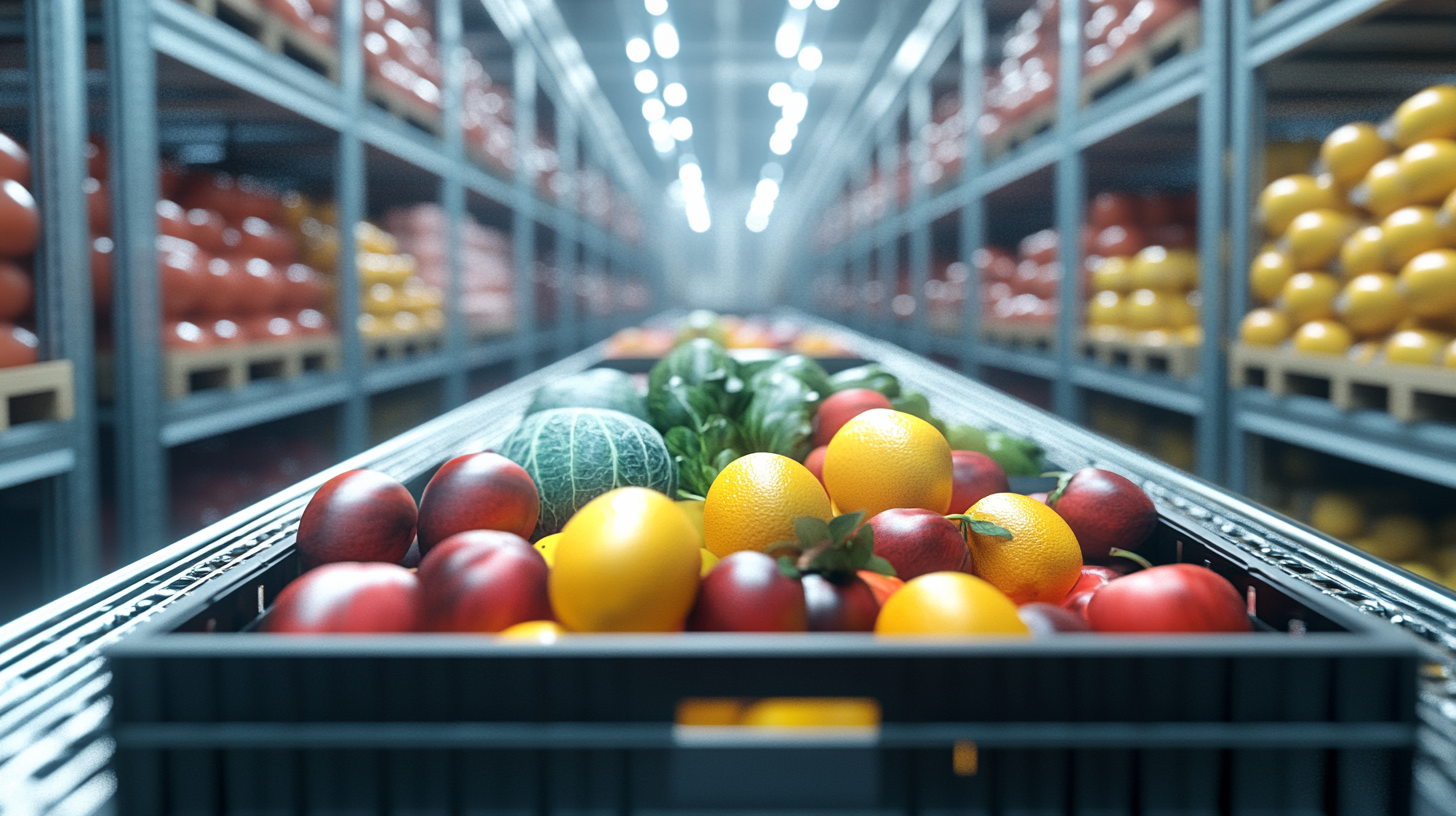
Lossful to inadequate cold chain in cold logistics and fresh produce logistics: Whether Africa, Asia (China, India), Latin America or even Europe - Image: Xpert.Digital
🍎🌱🧊 Fresh logistics and refrigerated logistics worldwide: challenges and solutions in dealing with perishable goods
🧺 Fresh and chilled logistics play a central role in the global food supply chain. Nevertheless, reality shows that inadequately functioning cold chains cause significant losses of perishable goods worldwide. The United Nations estimates that about 14% of food is lost between harvest and retail each year due to poor cold chain management. This equates to approximately 526 million tonnes of food spoiling due to inefficient temperature management in the global supply chain.
The loss of perishable goods not only has an economic impact, but also endangers food security and exacerbates environmental problems. Because these losses also mean that resources such as water, energy and labor are wasted without the benefits reaching consumers.
❄️ The importance of functioning cold chains
A functioning cold chain is essential to ensure the quality and safety of food. Particularly in developing countries, a lack of or inefficient cold chain infrastructure leads to significant losses that impact the entire value chain.
By investing in modern cooling technologies and optimized logistics systems, food losses could be significantly reduced. However, this requires not only financial resources, but also technical know-how, robust infrastructure and close cooperation between governments, the private sector and international organizations.
🌍 Challenges and impacts in different regions
🌾 Africa: A continent with enormous potential and great challenges
In Africa, up to 40% of perishable goods are lost before they reach the end consumer. Small producers in particular, who often do not have access to cooling options, are severely affected. These losses impact economic development as they not only reduce farmers' profits but also threaten food supplies and food security.
One example is Nigeria, where immense amounts of food spoil every year. The reasons for this are inadequate infrastructure, a lack of cold storage facilities and a lack of technical knowledge. Especially in a country that relies heavily on agriculture, this represents a key obstacle to economic development. Investments in mobile refrigerated containers and the expansion of the road network could help here.
More about it here:
🌾 Asia: Huge losses despite growing economic powers
In Asia, food losses due to poor cold chains are also widespread.
India
In India, one of the world's largest agricultural producers, between 20 and 50% of perishable goods are wasted. The lack of infrastructure and the inefficient distribution chain lead to significant economic damage. It is estimated that better cold chain logistics could save billions annually while stabilizing food supplies. The focus here is on the introduction of energy-efficient cold storage facilities and the training of specialist staff.
China and Pakistan
While China accounts for more than 50% of global losses of perishable goods, Pakistan contributes around 7%. Both countries face similar challenges, including outdated technologies, poor transport routes and limited availability of modern refrigeration systems. However, initial progress is being made in China, particularly through the use of digital solutions such as IoT monitoring systems for the transport of perishable goods.
🌾 Latin America: Promising agricultural sector with weaknesses in logistics
Latin America is known for its fertile soil and rich agricultural products, but here too, inefficient cold chains cause losses:
Colombia
In Colombia, many foods spoil in the early stages of the supply chain, particularly during post-harvest and transportation. These losses are often due to a lack of standards, inadequate storage capacity and poor handling practices. One way to improve this would be to expand cold chain cooperatives that give small and medium-sized producers access to modern technology.
🌾 Europe: Advanced technology, yet avoidable losses
Compared to other regions, Europe has a well-developed cold chain infrastructure, but significant losses still occur here.
Food waste in the EU
Around 88 million tonnes of food are wasted in the European Union every year. This corresponds to economic damage of around 143 billion euros. Around 13% of these losses occur in the supply chain before the products reach the retailer. Temperature deviations during transport or storage are a common cause.
Technological solutions
The introduction of sensors that monitor temperature and humidity, as well as the use of modern cooling systems, could reduce these losses. Collaboration between producers, logistics companies and retailers also plays an important role.
Suitable for:
🔧 Technological innovations as a solution approach
One of the most promising developments in the field of refrigerated logistics is the integration of modern technologies.
1. IoT and sensors
By using IoT sensors, temperature and humidity can be monitored in real time. This enables precise control and quick reactions to deviations, which can minimize losses.
2. Blockchain technology
The traceability of products along the entire supply chain is significantly improved by blockchain solutions. This increases transparency and makes it easier to identify weak points in the cold chain.
3. Energy efficient cooling technologies
Modern cold storage facilities and transport solutions are increasingly relying on environmentally friendly and energy-efficient systems. Solar-powered cooling units could provide a sustainable alternative, particularly in developing countries.
4. Artificial Intelligence (AI)
AI-powered systems analyze large amounts of data to optimize logistics and make predictions about potential losses. This can help avoid supply chain bottlenecks and reduce costs.
More about it here:
🌎 Strategies to improve global refrigerated logistics
Reducing perishable goods losses requires a holistic approach:
- Investments in infrastructure: The expansion of cold storage facilities, storage facilities and transport routes is particularly essential in developing countries.
- Education and Training: Farmers, traders and logisticians need training to understand the importance of temperature checks and the proper handling of perishable goods.
- International cooperation: Governments, NGOs and private companies should jointly develop strategies to improve refrigerated logistics and promote financing of sustainable projects.
- Promoting local innovation: Especially in regions with limited resources, local solutions such as mobile cooling units or solar-powered technologies can make a big difference.
🌟 A global challenge with solvable approaches
Losses of perishable goods due to inadequate cold chains represent a global challenge affecting food security, the economy and the environment. While developing countries are particularly hard hit by infrastructure gaps and a lack of know-how, there is still potential for optimization in industrialized nations.
The introduction of modern technologies, improving infrastructure and greater international cooperation are essential to reduce these losses. With the right approach, not only can millions of tons of food be saved, but also a significant contribution to global food security and the sustainable use of resources can be made.
📣 Similar topics
- 🌍 Global refrigerated logistics: How we can reduce food losses
- ❄️ Cold chains worldwide: Technological solutions for the future
- 📦 Efficient fresh produce logistics: The importance of modern infrastructure
- 🌱 Sustainability and cold chains: Minimize food losses, conserve resources
- 📊 IoT, Blockchain and AI: Innovations in refrigerated logistics
- 🚚 Transporting perishable goods: challenges and steps for optimization
- 🌎 Developing countries in focus: How cold chains strengthen food security
- 🥶 Cold chains as the key to secure global food supplies
- 💡 Future trends in refrigerated logistics: energy efficiency and smart technologies
- 🌟 Regional differences in refrigerated logistics: solutions for Africa, Asia and Europe
#️⃣ Hashtags: #refrigerated logistics #food losses #sustainability #innovations #food security
Xpert partner in warehouse planning and construction

Xpert.Plus warehouse optimization - high-bay warehouses such as pallet warehouses consulting and planning
We are there for you - advice - planning - implementation - project management
☑️ SME support in strategy, consulting, planning and implementation
☑️ Creation or realignment of the digital strategy and digitalization
☑️ Expansion and optimization of international sales processes
☑️ Global & Digital B2B trading platforms
☑️ Pioneer Business Development
I would be happy to serve as your personal advisor.
You can contact me by filling out the contact form below or simply call me on +49 89 89 674 804 (Munich) .
I'm looking forward to our joint project.
Xpert.Digital - Konrad Wolfenstein
Xpert.Digital is a hub for industry with a focus on digitalization, mechanical engineering, logistics/intralogistics and photovoltaics.
With our 360° business development solution, we support well-known companies from new business to after sales.
Market intelligence, smarketing, marketing automation, content development, PR, mail campaigns, personalized social media and lead nurturing are part of our digital tools.
You can find out more at: www.xpert.digital - www.xpert.solar - www.xpert.plus



